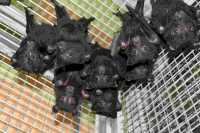Infections, Vaccine Studies / 14.01.2025
Duke-NUS Study Finds T-Cells Protect Against Acute Viral Infection
MedicalResearch.com Interview with:
Professor Ooi Eng Eong
Emerging Infectious Diseases Programme
Duke-NUS Medical School
and Shirin Kalimuddin
Assistant Professor and Senior Consultant
Department of Infectious Diseases
Singapore General Hospital and a faculty member of the
Emerging Infectious Diseases Programme at
Duke-NUS Medical School
MedicalResearch.com: What is the background for this study?
Response: The recent pandemic taught us the importance of T cells to protect against COVID-19, especially severe disease. Indeed, where SARS-CoV-2 antibody titres have been too low to neutralise new variants of concern, there is now sizeable evidence that T cells can serve as the correlate of protection against symptomatic infection. However, most working on developing or applying vaccines to prevent diseases such as dengue, continue to focus on measuring antibodies. The goal of this study was thus to determine the extent to which T cells, in the absence of neutralising antibodies, can control infection and hence disease.
We thus took advantage of two other viruses that are genetically related to dengue virus, with licensed vaccines that allow us to probe the effectiveness of T cells in controlling infection. The two vaccines are the live attenuated yellow fever vaccine and the Japanese encephalitis/yellow fever chimeric vaccine. The latter vaccine was constructed using the yellow fever vaccine as the genetic backbone but bearing the genes that encode the Japanese encephalitis viral membrane and envelope proteins. As neutralising antibodies target the envelope protein, vaccination with one vaccine would produce antibodies that would not neutralise the second vaccine. However, the T cell response, which mostly target the other proteins that remain common in both vaccine strains, would be identical.
(more…)












